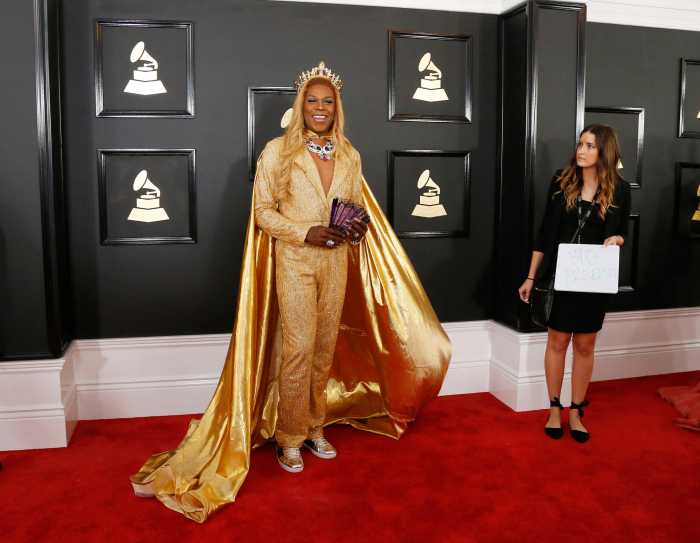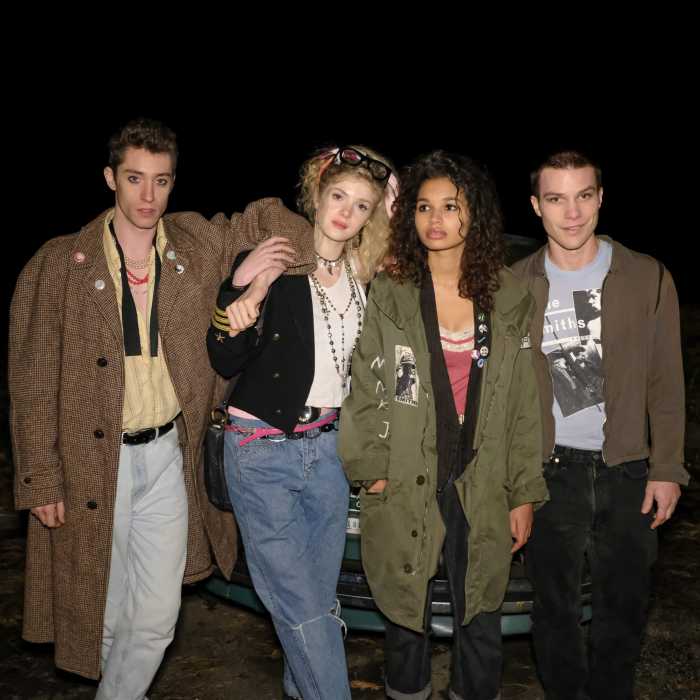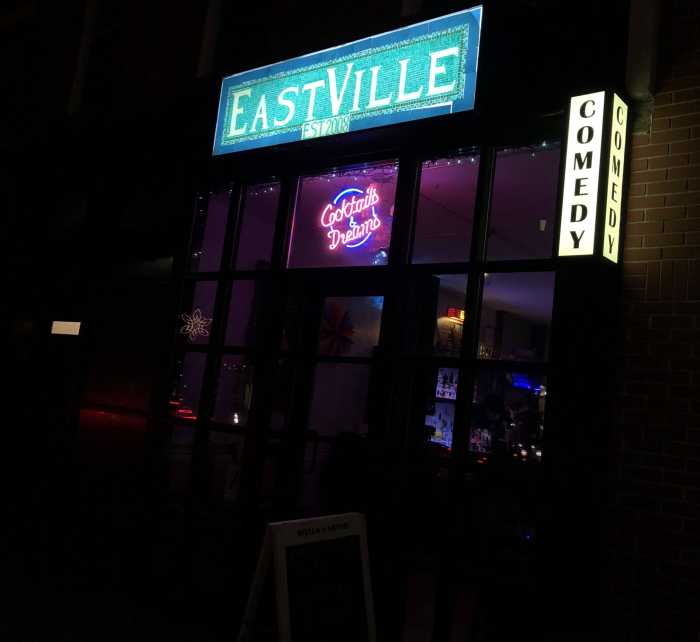Japanese Breakfast’s music video, “Posing in Bondage,” depicts Michelle Zauner, the woman behind the band name, as a vampire covered in blood and wearing a black dress while she prowls a nearly abandoned late-night supermarket. It uses slow motion to match the reverb and delay on the song itself. But more importantly, it queers dark, horror-adjacent imagery in a positive direction.
The woman running the cash register is the only other person appearing in “Posing in Bondage,” and while Zauner spends much of it staring at blinking lights in the milk and juice aisle, they connect wordlessly and bond over ramen. It pushes a potential nightmare towards dreamy romance. The visual also gains some resonance as a sequel to her video for “Savage Good Boy,” in which she plays a woman trapped in an underground bunker with a wealthy character portrayed by “The Sopranos” actor Michael Imperioli. He feeds her gumdrops while he dines on full metals, and he dresses her in a series of stereotypically Asian costumes.
Zauner is a bisexual woman whose late mother was Korean and father is Jewish. Her recent memoir, “Crying in H Mart,” helps explain some of the imagery in this video. Its first chapter describes a trip to the titular Korean grocery with her mom. She has always seen food as a way of connecting to her roots and hosted a show on Vice’s Munchies YouTube channel about the links between food and immigration. “Crying in H Mart” describes a moment on a trip to Vietnam following her mother’s death where she and her father finally admit “We’re foodies.”
Japanese Breakfast’s new album, “Jubilee,” is expertly crafted indie pop. She took piano lessons and classes in music theory before recording it, and the effort shows. Her songwriting is matched by skills of arranging and producing. Japanese Breakfast’s genre-jumping evokes The 1975 at their best. Like them, she frequently draws on the ‘80s British genre of sophisti-pop, which brought slick production to a mix of funk, rock and pop. The comparison also seems true when the album closes with the lengthy ballad “Posing for Cars,” which rhymes with The 1975’s “I Always Wanna Die (Sometimes).” It starts off as a spare dirge but adds more and more elements, closing with a guitar solo running several minutes. For an artist who seems so up to the minute, picking up the electric guitar to form the emotional climax of her album is a bit old-fashioned, but she uses such solos, as on “Savage Good Boy,” to get out of formulaic song structures.
The production sometimes drips endless echo, with her vocals lower in the mix than synthesizers. “Sit” uses her voice as an instrument amidst shoegaze hubbub, with the actual lyrics almost impossible to make out. “Slide Tackle” spins out into wordless vocals. “Kokomo, IN” blends a string arrangement with country-inspired lead guitar in a way that I’ve never heard before, while “Tactics” also dabbles in orchestral pop. The production choices enhance or complicate her lyrics. “Be Sweet,” which urges a man who’s left a woman to come back and treat her better the second time around, sounds much more confident delivered with swaggering, funky rhythm guitar.
She’s gained a great deal more attention in the four years since her last album was released, much of it outside the music world. “Crying In H Mart” debuted at #2 on the New York Times non-fiction best-seller list. (Its centerpiece is a wrenching recollection of serving as a caregiver for her mother as she died of cancer.) She’s produced a cooking show through Vice. The first single from “Jubilee,” “Be Sweet,” is getting commercial radio airplay, albeit a very small amount. She used the phrase “Jimmy Fallon Big” for a song title on her second album, but she has now performed “Be Sweet” on the actual Jimmy Fallon show.
In her memoir, she describes a period as a teenager where she saw numerous bands touring Eugene, Oregon, but Yeah Yeah Yeahs singer Karen O., who is also half Korean and half white, was the “first icon of the music world I worshipped who looked just like me.” But she also wondered if the existence of one Asian-American female rock star meant that there would be no space for her in the scene. That time has passed. Despite soaring racism against Asian-Americans, visibility for musicians of Asian descent in the US and UK has increased greatly.
While Mitski and mxmtoon have become stars in the indie scene, Rina Sawayama seems poised at the edge of a pop breakthrough. (All three are queer.) The Filipina-American actor/singer Olivia Rodrigo has become an overnight superstar, using her fame from Disney’s “High School Musical” to launch a music career that’s already landed her two number one singles in 2021 — and Rodrigo’s “Sour” has sold more than any other 2021 release in its debut week. Zauner says that she hopes to inspire more Asian-Americans to become musicians.
In this context, the genre-hopping of “Jubilee” means something more than mere taste. Drawing on sounds from the ’80s and ‘90s at a time when Asian-American women were excluded from making pop or rock music is a way of writing them into that history. Thus, it seems fitting that “Jubilee” closes with an old gesture of rock’n’roll rebellion: a blast of feedback.
JAPANESE BREAKFAST | “Jubilee” | Dead Oceans | June 4


































